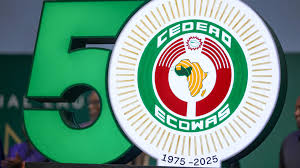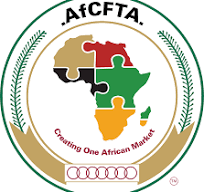ADVERTORIAL: CBN: Making access to finance easier for Nigerian farmers
The two major hindrances when it comes to access to finance by farmers is lack of collateral and high interest rates” – Abdulkadir Ahmed Faragai, Central Bank of Nigeria
Accessing agricultural finance or loans is one of the most daunting challenges Nigerian farmers are grappling with, most especially uneducated farmers in rural parts of the country. As per the CBN’s annual report of 2014, credit to the agric sector averaged 2.24%. Furthermore, a paper on development finance interventions of the CBN (October, 2014) indicates that source of finance for Nigerian businesses was captured as: bank loans 1%; family and friends 40%; suppliers credit and customer advances 25% and retained earnings 20%.
For millions of farmers out there lack of awareness on the guidelines and processes for accessing agricultural loans from the Central Bank of Nigeria (CBN), Bank of Agriculture (BOA) and other commercial banks, high interest rates and lack of collaterals are great hindrances.
Whereas CBN and BOA provide access to loans to farmers at concessionary rates of single digits, commercial banks offer interest rates of over 20% which is too high and scares away farmers from agric loans. The situation creates obstacles in accessing funding for agriculture. At farm level, the situation is manifested in lack of economics of scale; rain-fed farming, which is vulnerable to weather risks; infrastructure/ transport. Other obstacles include lack of collateral/land title/ capita; lack of financial documentation; lack of skills and weak cooperatives etc.
Commendably, in a bid to address the critical challenges of farmers accessing agricultural loans in Nigeria, the Central Bank of Nigeria and the Federal Ministry of Agriculture and Rural Development collaboratively launched a public private partnership called the Nigeria Incentive Based Risk Sharing for Agric Lending (NIRSAL) in 2013.
NIRSAL’s objective is to enable the flow of affordable financing to all players along entire agricultural value chains. It helps reduces the risks of financing institutions while granting agricultural loans by building the capacities of both banks and value chain actors on good practices in agricultural financing, loans utilization and repayment.
Between 2013 and 2016, NIRSAL had facilitated about $320 million in credit and additional lending in the agricultural sector and had last April announced that it targets a minimum of $200 million (about N63bn) for 2017.
And as part of the Buhari administration’s economic diversification strategies, the Central Bank of Nigeria in November 2015 came up with the Anchor Borrowers Programme (ABP), an ambitious program which seeks to create a million jobs across the agricultural value chains in Nigeria by 2021, through single digit facility loans to farmers.
Through ABP, the CBN has set aside N220 billion for agric loans to Nigerian farmers and the programme is creating a linkage between anchor companies involved in the processing and small holder farmers of the required key agricultural commodities. ABP’s thrust is the provision of farm inputs in kind and cash to small holder farmers to boost production of these commodities stabilize inputs supply to agro processors and address the country’s negative balance of payments on food.
Some of the commodities currently identified by the CBN are Cereals (Rice, Maize, wheat etc.); Cotton; Roots and Tubers (Cassava, Potatoes, Yam, Ginger etc.); as well as Sugarcane. Others are Tree crops (Oil palm, Cocoa, Rubber etc.); Legumes (Soybean, Sesame seed, Cowpea etc.); Tomato as well as Livestock (Fish, Poultry, Ruminants etc.)
The Anchor Borrowers Programme has already recorded huge success in states like Kebbi particularly in respect of rice production, which has already placed Nigeria on the path to self-sufficiency in rice production.
CBN’s thrust is to expand the ABP to all states of the federation including other viable commodities in order to revolutionize the agricultural value chain to make agriculture the mainstay of the economy.
Interested in the ABP? Please visits here for more information https://goo.gl/tu991c
Compiled by Moving Image Limited













